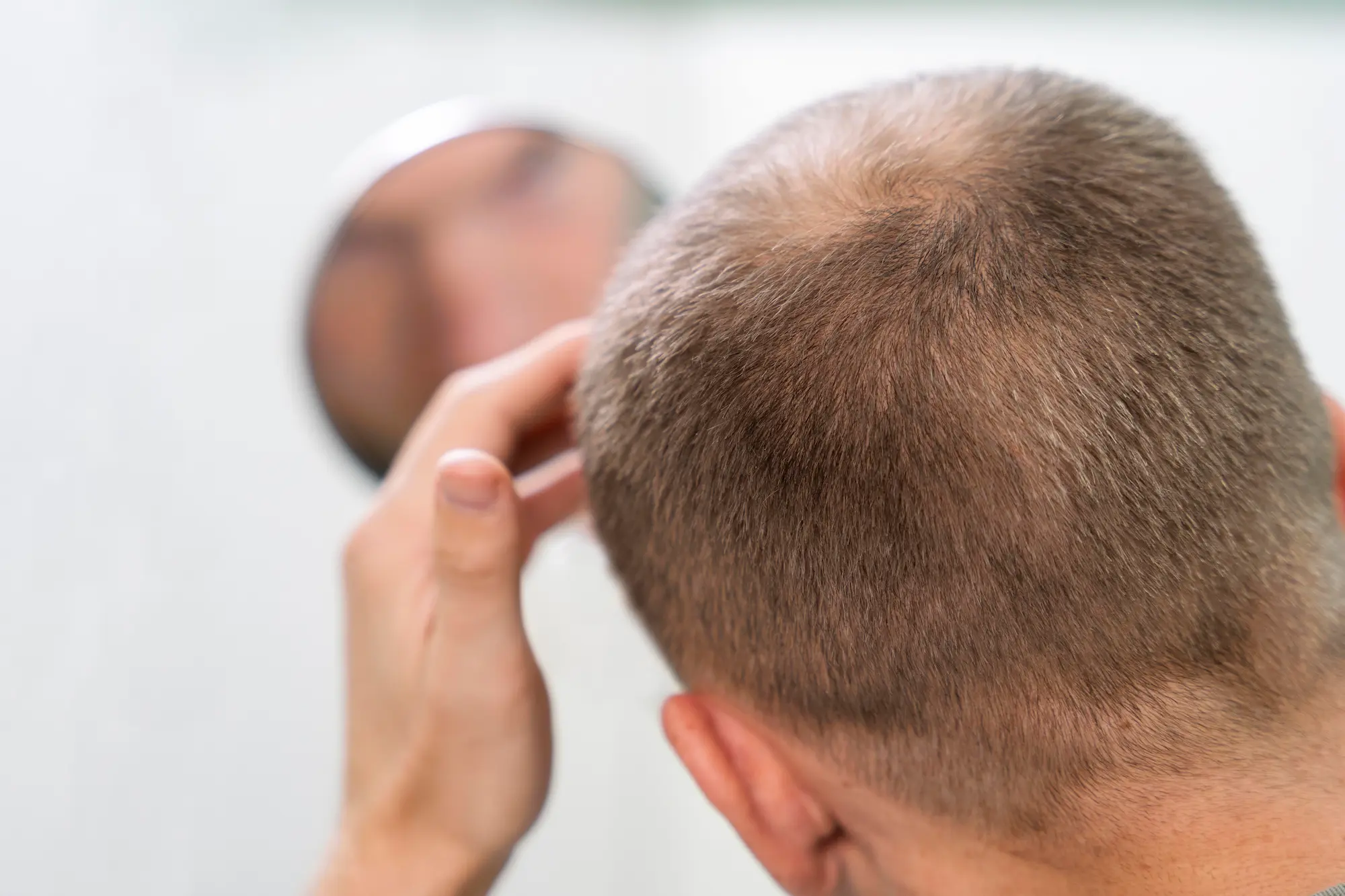In a world where our appearance often reflects our confidence and health, the concern over hair loss can be a significant source of stress. The quest for rapid hair regrowth has led many to explore natural remedies that not only address the issue but also foster overall hair health. In this guide, we delve into effective tips and strategies to regrow hair naturally within a remarkably short span just three weeks. From nutrient rich diets to mindful lifestyle choices, let’s embark on a journey to rediscover the joy of healthy, voluminous hair through holistic approaches. Say goodbye to worries about hair loss and hello to a revitalized, confident you!
Can I Regrow Lost Hair?
For those grappling with the distressing reality of hair loss, the question echoes loud: “Can I regrow lost hair?” The quest for a solution is not futile, as a strategic and natural approach can potentially yield results in as little as three weeks. Understanding the root causes, such as nutrient deficiencies and stress, is the first step. Nourishing your body with a balanced diet, incorporating scalp massages, and utilizing natural hair masks can create an optimal environment for regrowth.
Selecting hair care products enriched with vital ingredients like biotin is crucial. Additionally, managing stress levels and making lifestyle adjustments contribute significantly to a healthier scalp and hair. Join us on this three weeks journey as we unravel the secrets to regrowing lost hair naturally, empowering you with the tools to revive not just your hair but also your confidence. It’s time to embark on a transformative path toward a fuller, more vibrant mane.
How to Regrow Hair Naturally in 3 Weeks?
1. Nutrient Rich Diet: Start by nourishing your body from the inside out. A diet rich in essential nutrients plays a crucial role in promoting hair growth. Include foods high in vitamins A, C, and E, as well as minerals like iron and zinc. These nutrients support the health of your hair follicles and encourage faster regrowth.
2. Scalp Massage: Stimulating blood flow to the scalp is key to promoting hair regrowth. Regular scalp massages with essential oils such as coconut oil, castor oil, or rosemary oil can enhance circulation and nourish the hair follicles. Take a few minutes each day to massage your scalp gently for optimal results.
3. Natural Hair Masks: Treat your hair to nourishing masks made from natural ingredients. A combination of aloe vera, honey, and olive oil can create a potent mask that moisturizes the scalp and strengthens the hair shaft. Apply the mask once a week to revitalize your hair and stimulate regrowth.
4. Avoid Heat Styling: Excessive heat styling can damage your hair and hinder regrowth. Give your hair a break from blow dryers, straighteners, and curling irons. If styling is necessary, use heat protectant products to minimize damage and protect your hair’s natural texture.
5. Stay Hydrated: Proper hydration is essential for overall health, including the health of your hair. Drink an adequate amount of water each day to keep your body and hair well hydrated. Hydration supports the elasticity of your hair and prevents breakage, allowing for faster regrowth.
6. Stress Management: Stress can contribute to hair loss, so it’s crucial to manage stress effectively. Incorporate stress relief activities such as yoga, meditation, or deep breathing exercises into your routine. These practices not only benefit your overall well being but also promote a healthy environment for hair regrowth.
7. Regular Trims: While it may seem counterintuitive, regular trims can help your hair grow faster. Trimming the ends prevents split ends and breakage, allowing your hair to grow longer and healthier. Schedule a trim every six to eight weeks to maintain the vitality of your hair.
8. Choose the Right Products: Select hair care products that are gentle and free from harsh chemicals. Look for shampoos and conditioners specifically formulated for hair regrowth. Ingredients such as biotin, keratin, and saw palmetto can be beneficial in promoting hair health and regrowth.
What Causes Hair Loss?
Hair loss is a common concern affecting individuals globally, and understanding its underlying causes is pivotal in finding effective solutions. Various factors contribute to hair loss, ranging from genetics and hormonal changes to lifestyle and environmental influences. Genetics play a significant role, with hereditary conditions like male pattern baldness and female pattern baldness leading to gradual thinning.
Hormonal changes, such as those during pregnancy or menopause, can also trigger hair loss. Poor nutrition, stress, and certain medical treatments are additional culprits. An imbalance in the hair growth cycle, where more hair is shed than replaced, results in noticeable thinning.
Exploring the root causes of hair loss allows for targeted interventions. Addressing nutritional deficiencies, managing stress, and choosing appropriate hair care products can contribute to a healthier scalp and potentially mitigate hair loss.
What Role Does Stress Play in Hair Loss and How Can It Be managed?
Stress is a significant contributor to hair loss as it disrupts the hair growth cycle. Elevated stress levels can lead to conditions like telogen effluvium, causing hair to prematurely enter the resting phase. To manage stress related hair loss, adopting relaxation techniques such as meditation, yoga, and deep breathing exercises is crucial. Creating a balanced lifestyle, getting adequate sleep, and seeking support can also mitigate the impact of stress on hair health, fostering a conducive environment for regrowth.
What lifestyle adjustments can support the rapid regrowth of hair?
To support rapid hair regrowth, maintain a balanced diet rich in essential nutrients. Prioritize hydration, manage stress through relaxation techniques, and get regular exercise. Avoid heat styling and opt for natural hair care products. Adequate sleep and minimizing harmful habits contribute to a healthier scalp environment for faster regrowth.
Can hair loss be reversed naturally?
Yes, hair loss can be reversed naturally through various holistic approaches. A nutrient rich diet, scalp massages, and natural hair masks stimulate regrowth. Managing stress, choosing suitable hair care products, and avoiding damaging styling practices are pivotal. Consistent efforts in these areas create an optimal environment for natural hair regrowth.
Why should heat styling be minimized during the regrowth process?
During the regrowth process, reducing heat styling is crucial to prevent further damage to weakened hair. Excessive heat can strip moisture from the hair, leading to dryness and breakage. Heat styling tools, such as straighteners and curling irons, contribute to thermal stress, weakening the hair shaft. By minimizing heat styling, you allow your hair to recover and grow naturally. Opt for air drying or use heat protectant products when styling to maintain a healthier, more resilient hair texture, fostering an environment conducive to successful regrowth.
How long does it take to regrow hair naturally?
The duration for natural hair regrowth varies from person to person and depends on several factors, including the cause of hair loss and the chosen regrowth strategies. On average, noticeable changes may be observed within three to six months of consistent efforts. However, achieving full regrowth might take up to a year or longer. Patience and commitment to a holistic approach, encompassing a nutrient rich diet, proper hair care, and stress management, are essential for optimal results. Regular monitoring and adjustments to the regrowth plan may be necessary to cater to individual variations in the regrowth process.
How does hydration contribute to hair health and regrowth?
During the regrowth process, reducing heat styling is crucial to prevent further damage to weakened hair. Excessive heat can strip moisture from the hair, leading to dryness and breakage. Heat styling tools, such as straighteners and curling irons, contribute to thermal stress, weakening the hair shaft. By minimizing heat styling, you allow your hair to recover and grow naturally. Opt for air drying or use heat protectant products when styling to maintain a healthier, more resilient hair texture, fostering an environment conducive to successful regrowth.



